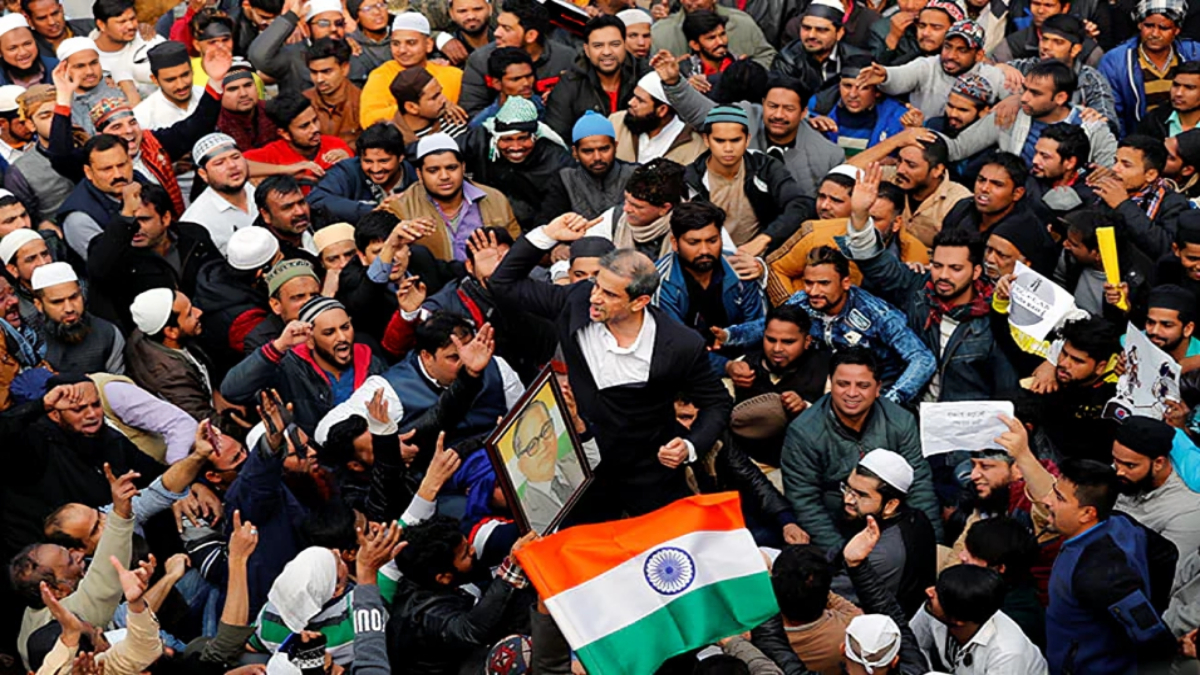The CAA, also known as the Citizenship (Amendment) Act, 2019, was put into effect by the government on Monday, after four years since it was passed by Parliament. This timing coincided with the upcoming Lok Sabha election. Despite receiving approval from Parliament in December 2019 and subsequent presidential assent, the CAA triggered extensive protests across the country. Numerous opposition parties condemned the law, branding it as “discriminatory”. Tragically, the protests and the subsequent police actions resulted in the unfortunate loss of more than 100 lives, as reported by news agency PTI.
What is CAA?
The Citizenship (Amendment) Act, 2019 (CAA) brings about changes to the Citizenship Act of 1955, providing an opportunity for Hindus, Sikhs, Christians, Buddhists, Jains, and Parsis who migrated from neighboring Muslim-majority countries such as Pakistan, Bangladesh, and Afghanistan before December 31, 2014, to obtain Indian citizenship. This amendment states that migrants who arrived in India by December 31, 2014, and experienced “religious persecution or fear of religious persecution” in their country of origin are qualified for an accelerated process of acquiring citizenship.
Who is eligible to apply for citizenship?
Applications for citizenship through registration or naturalization will not be taken into consideration under the Citizenship Amendment Act, 2019, Section 6B, unless the individual meets the specified criteria.
• Individual of Indian descent.
• Married to an Indian citizen.
• Minor child of an Indian citizen.
• Parents are documented Indian citizens.
• Individual or either parent was an Indian citizen at India’s independence.
• Holds Overseas Citizen of India (OCI) status.
Documents Required
An affidavit verifying the correctness of the statements made in the application along with an affidavit from an Indian citizen testifying the character of the applicant.
• A declaration from the applicant that he has adequate knowledge of one of the languages as specified in the Eighth Schedule to the Constitution.
A plea has been filed by a Muslim organization in the Supreme Court, requesting a halt on the implementation of a certain matter.
According to news agency ANI, the Indian Union Muslim League has submitted a petition to the Supreme Court, urging for a suspension of the recently implemented Citizenship Amendment Act (CAA) Rules 2024.
The petition aims to put a stop to the continued implementation of the disputed sections of the Citizenship Amendment Act, 2019, as well as the Citizenship Amendment Rules 2024.
The argument put forth in the plea suggests that these laws may result in the establishment of significant privileges and the granting of citizenship exclusively to individuals belonging to specific religions. This, in turn, could create a situation where irreversible consequences occur while the current Writ Petition is still pending.
Centre launches separate portal to apply for citizenship, will launch mobile app ‘CAA-2019’
The new online portal, http://indiancitizenshiponline.nic.in, was officially unveiled by the central government on Tuesday for individuals seeking citizenship under CAA-2019.
This initiative comes right after the announcement of the rules for the Citizenship (Amendment) Act, 2019, signifying the commencement of the law. As per a report by news agency PTI, a mobile application named CAA-2019 will also be introduced by the government.

